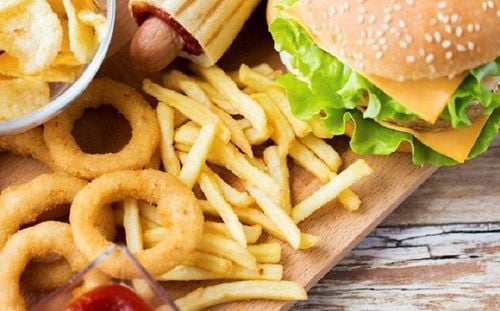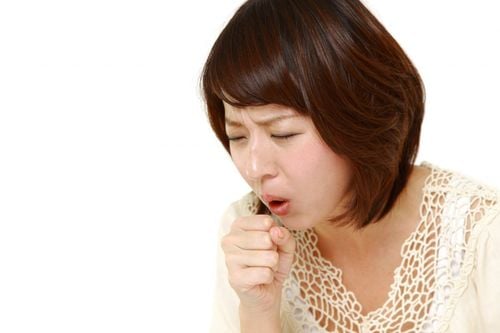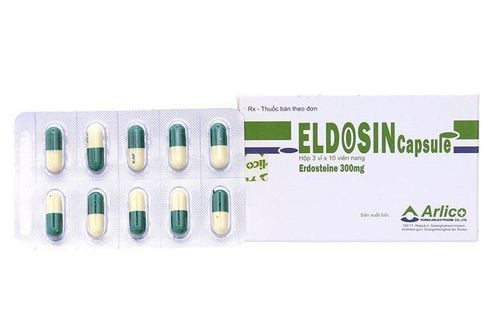1. The Role of Nutrition in Treating Cough
Before determining what foods people with a cough should avoid, patients need to understand the impact of diet on the effectiveness of cough symptom treatment. Eating is one of the basic needs of every person, with the most important purpose being to provide the necessary nutrients for the body's activities. Similarly, for those suffering from a cough, providing adequate essential nutrients is key to boosting the body's resistance and combating illness. However, the diet for people with a cough needs to adhere to certain principles; understanding what not to eat and choosing suitable foods play an important role in the treatment process.
Some requirements and roles of a proper diet in cough treatment include:
- Providing essential nutrients: Choosing suitable dishes and preparation methods helps supplement the body with necessary nutrients. However, this doesn’t mean that people with a cough can eat everything. Foods that irritate the throat and cause more coughing should be limited.
- Boosting the immune system: Most patients with a cough have weakened immunity. To recover from illness, they need an appropriate diet. However, food choices must ensure adequate nutrition without worsening the cough symptoms.
- Reducing throat irritation: Selecting appropriate foods and preparation methods can minimize throat irritation, reducing itchiness and the likelihood of frequent coughing. To achieve this, avoid irritating foods like sour, spicy, salty, or hot dishes.

2. What Shouldn't People with a Cough Eat?
Many believe that patients with any illness should consume plenty of nutrients and eat whatever they like. However, this is a misconception, especially for those suffering from a cough. Persistent coughing can damage the throat lining, causing soreness. As a result, certain foods may irritate the throat lining and trigger more frequent coughing. Below is a list of foods to avoid when dealing with a cough:
- Seafood and fishy-smelling foods: According to specialists, people with a cough (especially those with asthma-related coughs) should avoid foods with a strong fishy smell, such as shrimp, squid, fish, crab, and shellfish. These contain high levels of protein, which can trigger allergies and prolonged coughing. Additionally, consuming these foods may cause symptoms like shortness of breath, nausea, and vomiting, further irritating the throat and worsening the cough.
- Fried and greasy foods: These are common answers to what foods to avoid when coughing. People with a cough often have weakened resistance and feel fatigued. Consuming greasy foods can harm the stomach and increase phlegm production, prolonging coughing symptoms.
- Cold foods: Cold foods can irritate the throat and exacerbate coughing. Additionally, cold foods may damage the lungs, block airways, and worsen the condition. Refrigerated foods should be allowed to reach room temperature before consumption.
- Overly salty or sweet foods: Such foods generate internal heat, worsening persistent coughing. Avoid overly salty foods like smoked meats or salted fish, as well as overly sweet foods like cakes and chocolates.
- Processed foods: Processed foods often contain preservatives that can harm the body, such as bread, dried fruits, and packaged snacks.
Beverages with gas, alcohol, or stimulants: Drinks like beer, wine, and coffee can worsen throat irritation. Instead, individuals should drink plenty of water, preferably warm, to soothe the throat. - Milk: Patients are advised to avoid milk, as it stimulates mucus production, increasing phlegm and prolonging coughing. This can lead to inflammation and worsen the illness.
- Vegetables with a lot of mucus: Vegetables like taro, yam, malabar spinach, and jute leaves increase mucus production, causing persistent coughing.
- Citrus fruits and coconut: Although cooling, these fruits are not suitable for people with a cough. They may damage internal organs, and substances like cellulite in citrus can increase mucus production, triggering phlegmy coughs.

3. Additional Tips for People with a Cough
Aside from focusing on foods to avoid, patients should follow these tips to improve recovery:
- Avoid smoking, as it can exacerbate coughs and respiratory issues.
Refrain from eating heavily at night to prevent acid reflux, which can worsen coughing. - Maintain good oral hygiene by brushing teeth at least twice daily.
- Regularly rinse the nose with saline during illness.
- Gargle with saline to soothe the throat.
- Engage in light exercise to strengthen immunity.
- Avoid excessive physical activities, which can strain breathing and dry out the throat.
- Limit exposure to polluted, cold environments or prolonged air-conditioned settings.
4. Recommended Dishes for People with a Cough
To complement the list of foods to avoid, here are some nutritious and soothing dishes for people with a cough:
- Pennywort soup: A cooling dish made with pennywort and pork, effective for dry or chronic coughs.
- Radish soup: Recommended by nutritionists for alleviating dry cough symptoms.
- Luffa soup: Not only delicious but also rich in nutrients, this soup can reduce coughing and throat inflammation. It can be prepared with malabar spinach and minced meat.
- Bean sprouts: Effective for sore throats, hoarseness, and bloating. Simple preparations like boiling, juicing, or making soup can quickly alleviate coughing.
- Chrysanthemum greens soup: These greens help reduce phlegm, inflammation, and throat pain. They can be cooked with pork, onions, and ginger for a tasty, cough-relieving dish.
When preparing meals, it’s advisable to use less salt, as it can increase mucus production and prolong coughing.
For more health, nutrition, and beauty tips, follow the website of Vinmec International Hospital.
To arrange an appointment, please call HOTLINE or make your reservation directly HERE. You may also download the MyVinmec app to schedule appointments faster and manage your reservations more conveniently.













